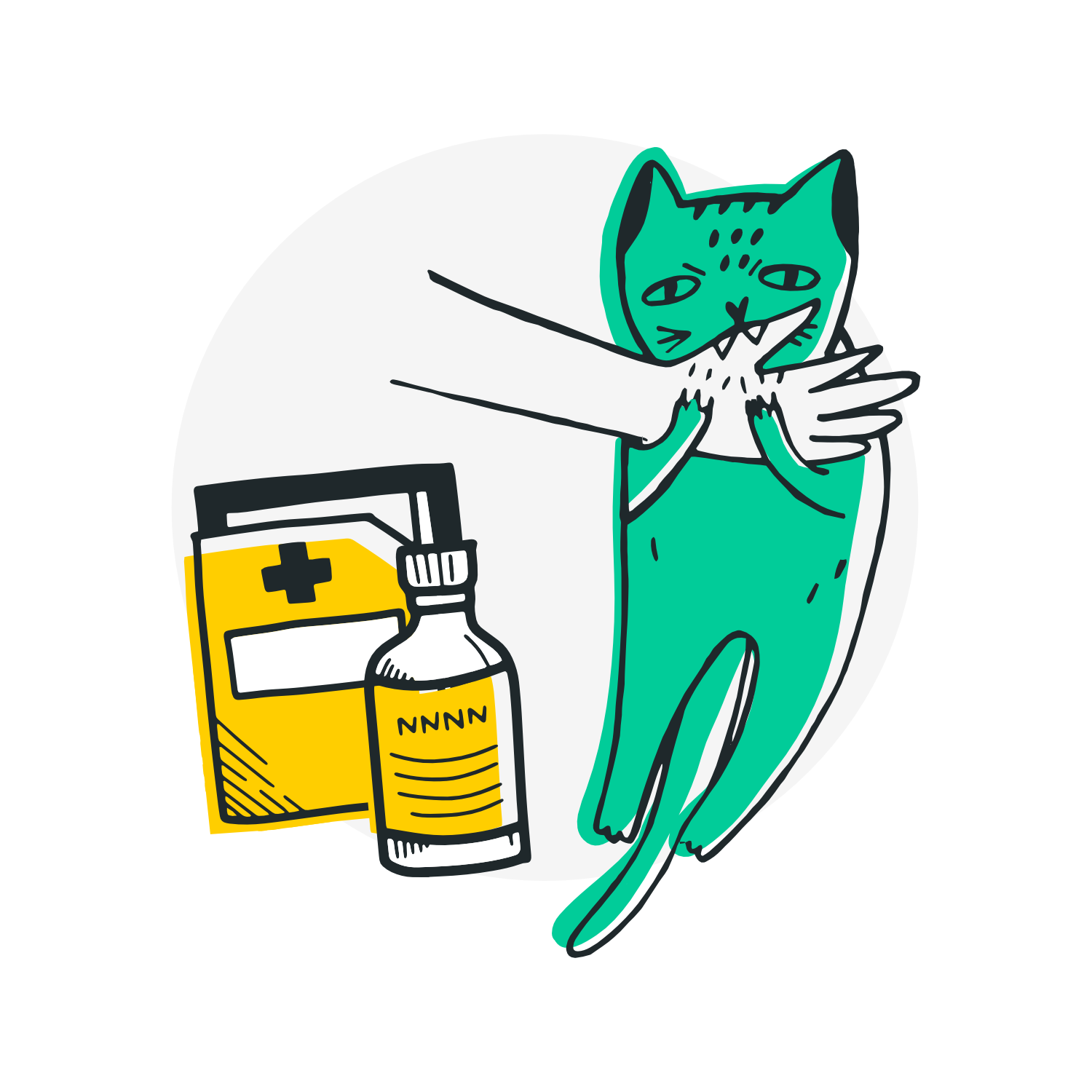

Your cat needs vaccinations, even if it is a domestic toy hunter and not a wild beast! Vaccinations are a shield against dangers. The importance of vaccination cannot be underestimated as it protects against dangerous diseases.
Key diseases cats are vaccinated against:
Panleukopenia: This viral disease can be fatal for cats. Symptoms include loss of appetite, high fever, vomiting, and diarrhea.
Calicivirus Infection: A virus that causes respiratory diseases in cats. Symptoms include mouth ulcers, runny nose, and sneezing.
Rhinotracheitis: A herpes virus that causes upper respiratory infections. Symptoms include runny nose, sneezing, and conjunctivitis.
Chlamydia: An infection that often causes conjunctivitis and respiratory symptoms in cats.
Vaccination schedule:
For kittens - the first vaccination at 2 months, then a booster in 3-4 weeks.
For adult cats - annual revaccination to maintain immunity.
Rabies - a special case, vaccinated from 3 months and the protection updated annually.
Preparation for vaccination:
Before vaccination, always conduct a veterinary check-up to avoid complications if your cat is not in shape. The vet will check the overall health of the cat and provide recommendations for further actions.
Vaccinations open the doors to a safe world for your cat - buses, trains, planes, and even cat hotels await vaccinated travelers. Many countries require up-to-date vaccinations for entry with animals, making vaccination an important condition for travel.
Remember, cats have 9 lives, but we are responsible for each of them. Vaccination is an expression of love and care. We wish all furry friends good health and long years of life with you!
Frequently Asked Questions:
Are vaccinations safe for cats? Yes, vaccinations are safe and necessary to protect against serious diseases. Minor side effects, such as mild fever or fatigue, are possible but they quickly pass.
Do indoor cats need vaccinations? Yes, even indoor cats can catch infections through contact with contaminated objects or other animals.
How often should a cat be vaccinated? It is recommended to vaccinate annually to maintain effective immunity.





Technical support and cooperation questions kotobook9@gmail.com

